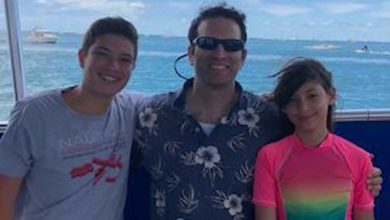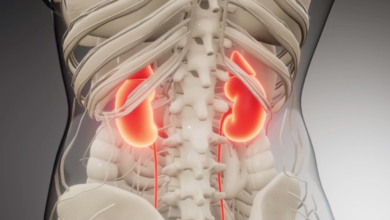
WASHINGTON – A majority of the Supreme Court appeared to be skeptical Monday of Texas' six-week abortion ban as justices questioned whether states could use similar laws to restrict gun ownership or the freedom of religion.
In its most high-profile case of the term so far, the justices also wrestled with the potential long-range impact of blocking the ban – a move that could expand the circumstances under which a state could be sued for controversial laws.
Texas' law, which empowers private citizens to enforce the ban on abortion after six weeks of pregnancy, has tied courts in knots over procedural questions even as it has galvanized forces on both sides of one of the nation's most bitter cultural conflicts. After three hours of oral argument, it was not entirely clear which side will prevail.
At issue is Texas' unusual enforcement mechanism, which has generated a debate about whether federal courts, including the Supreme Court, have jurisdiction to step in. That prompted opponents of the law to argue that Democratic-leaning states could use a similar mechanism to shut down constitutional rights precious to conservatives within their borders.
Texas allows people bringing suits under the law to collect at least $10,000.
Associate Justice Brett Kavanaugh, pointing to a brief from a prominent gun rights group that supports the abortion clinics, pressed attorneys for Texas on why other states wouldn't copy its enforcement mechanism to avoid federal court review of such laws. The response: Those affected by the state law could seek help from Congress.
"It wouldbe quite difficult to get legislation through Congress," Kavanaugh noted. "Are you saying, absent that, that Second Amendment rights, free exercise of religion rights, free speech rights could be targeted by other states?"
Texas Solicitor General Judd Stone acknowledged that it could, noting that the state's position "does not turn on the nature of the right."
Chief Justice John Roberts pressed attorneys for Texas on the implications of its law and whether it would undermine constitutional rights accepted by the nation's highest court. What if a state, he asked, permitted citizens to sue anyone selling a gun and allowed them to collect up to $1 million in damages?
"Do you think, in that case, the chill on the conduct at issue here would be sufficient to allow federal court review" before state courts acted, Roberts asked.
Stone said it would not.

The court allowed the Texas ban to remain in force in September, a day after it went into effect. Roberts, nominated to the court by President George W. Bush, joined the court's three liberals in dissenting from that ruling.
Roberts also pressed the plaintiffs in the two cases. The court seemed skeptical of a lawsuit filed by the Biden administration, questioning whether the United States had been so harmed by the Texas law that it was in a position to sue in the first place.
The United States sued Texas at large. The court also heard arguments in a separate lawsuit filed by abortion clinics against Texas court judges and their clerks who perform administrative and ministerial functions.
Some of the court's conservatives, led by Associate Justice Samuel Alito, questioned whether state court officials could be sued. Supreme Court precedent sets a high bar – impossible to clear, some argue – for federal courts to block state judges from hearing a case.
It's "unprecedented, and it is contrary to our system of federalism to enjoin a state judge even from hearing a case," Alito asserted.
Alito and Associate Justice Neil Gorsuch seemed to favor allowing the lawsuits to play out in state court, where abortion clinics could defend the procedure under Supreme Court precedent. Those cases could then be appealed to the Supreme Court.
Newly confirmed U.S. Solicitor General ElizabethPrelogar described the Texas law as a "brazen attack" on the branches of the federal government, including the Supreme Court, which has held since 1992 that people are entitled to an abortion up until the point that a fetus is viable outside the womb, about 24 weeks.
In one exchange, Gorsuch noted that "not in the history of the United States" could Prelogar identify a similar request by the federal government to block all private citizens in a state from filing a lawsuit.
"In the history of the United States, no state has done what Texas has done here," Prelogar responded.

Abortion already featured prominently on the court's docket this year after the justices agreed to hear a lawsuit over Mississippi's ban on the procedure after 15 weeks of pregnancy. Attorneys for the state explicitly asked the court to overturn its landmark 1973 ruling in Roe v. Wade that established the constitutional right to end a pregnancy.
The Texas law, by far the most restrictive of its kind in the USA, rocketed ahead of Mississippi as a series of federal court decisions kept it in place. The Supreme Court agreed to hear both suits challenging the Texas law on an expedited schedule.
More:Supreme Court declines to block Texas abortion law over Sotomayor dissent
More:Justice Thomas celebrates 30 years on a Supreme Court that is moving his way
The U.S. Court of Appeals for the 5th Circuit allowed the law to stay in effect while courts hash out the underlying constitutional questions. That has prompted many Texans seeking the procedure to cross state lines.
The Texas law bans abortions once cardiac activity is detected in an embryo, usually around six weeks and before many women know they're pregnant. That timeframe is well before the standard set by the Supreme Court in 1992.

Hundreds gathered outside the Supreme Court on Monday before the arguments began, chanting and counter-chanting, "Abortion is a lie, no babies choose to die" and "abortion is health care!"
Kaitlan Abrams, 25, traveled from Brooklyn, New York, with Housing Works, a health care and anti-poverty advocacy group, to rally outside the court.
“The truth is that if abortion isn't legal, people are still going to get abortions, and they're going to do them in unsafe, illegal, criminalized ways,” Abrams said.
Texas state Sen. Bryan Hughes, a Republican who traveled to Washington, defended the use of private citizens as the enforcement mechanism for the law. Hughes hoped other states would adopt the practice.
"States are laboratories of democracy, and we learn from other states' mistakes and what we get right," he said. "We definitely believe other states will look at this and we can work together.”
Contributing: Matthew Brown
Source link









